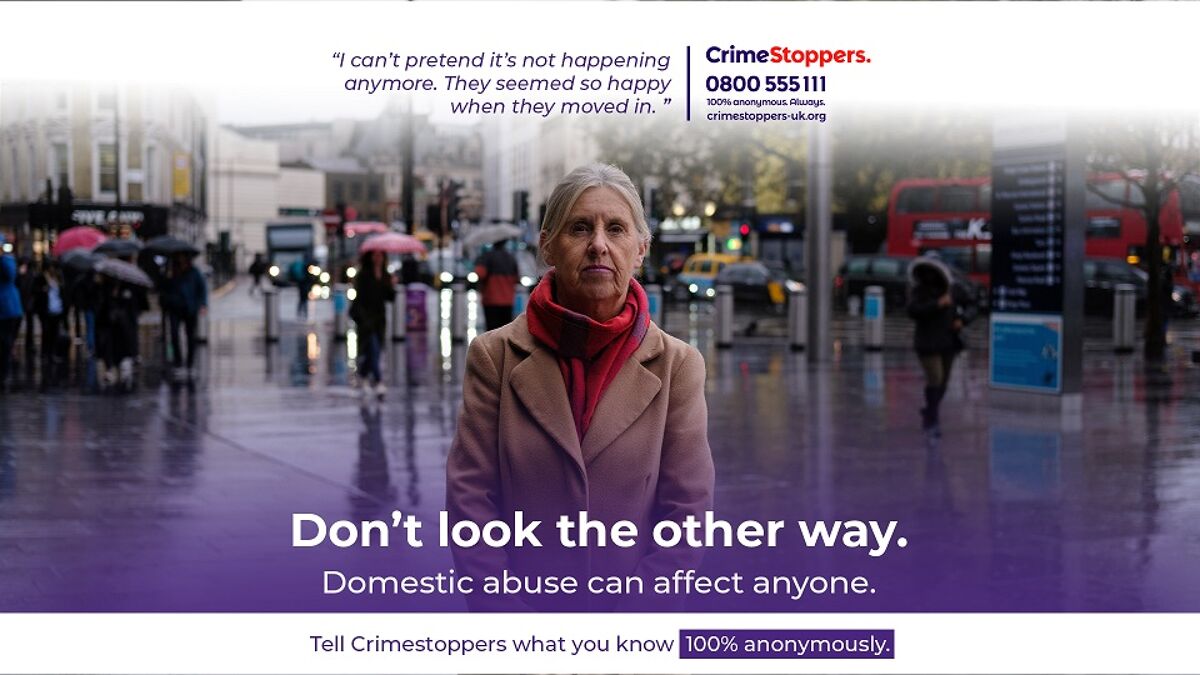London's Hidden Harms: domestic abuse
We're running a campaign to tackle London’s Hidden Harms, shining a spotlight on sometimes-hidden crimes such as domestic abuse, hate crime and modern slavery.
We're encouraging people in London to find out more about the different types of domestic abuse and learn the signs to spot, so that if you do see something, you can speak up and tell us what you know. 100% anonymously - guaranteed.Tell us what you know. 100% anonymous. Always.
In an emergency, always call 999. If it’s not an emergency and you’d prefer to stay anonymous, contact us online or on the phone by calling 0800 555 111, 100% anonymously - guaranteed.
What can you do to make a difference?
As a bystander, family member, colleague or friend, you may feel helpless when you know someone is a victim of domestic abuse. Whilst ultimately the victim will need to make the decision to leave the relationship themselves, we encourage you to report your suspicions. We will then pass on information to the relevant police force who, with partners, may be able to intervene away from the abuser to check the potential victim is OK.
What is domestic abuse?
Domestic abuse is behaviour from a family member, partner or ex-partner that is controlling, coercive, threatening, violent or abusive, and happens between people aged over 16.Domestic abuse can happen to both men and women. It includes the following types of abuse:
- psychological
- physical
- sexual
- financial
- emotional
How do you know if someone is a victim of domestic abuse?
Domestic abuse warning signs include:- Their partner puts them down in front of other people
- They are constantly worried about making their partner angry
- They make excuses for their partner’s behaviour
- Their partner is extremely jealous or possessive
- They have unexplained marks or injuries
- They’ve stopped spending time with friends and family
- They are depressed or anxious, or you notice changes in their personality
- Threatening and intimidating arguments, which may involve violent language or escalate to smashing up the furniture
- Arguments where the partner blames the other for their actions, saying they are “asking for it” or deserve the abuse
- Individuals with bruising or other visible marks, which may have been caused by physical abuse
Domestic abuse doesn’t belong in our city, and you can be the change. Did you see something, but didn’t say anything? You have a second chance to act and stand up for victims of domestic abuse.
Tell us what you know. 100% anonymous. Always.
Read more about our anonymity guarantee
Multiple languages
If English isn't your first language, we take telephone calls and online forms in over 140 different languages, and our online reporting form is also available in all those languages.
See the language option at the top of this page for these options.
Are you a victim of domestic abuse?
Due to our anonymity guarantee, we can't take information from victims of crime. In an emergency, always call 999.- If it’s not an emergency and you don’t want to call the police, contact the 24 hr freephone National Domestic Abuse Helpline (run in partnership between Women’s Aid and Refuge) on 0808 2000 247 - available 7 days a week.
- Men's advice line is a confidential helpline for men experiencing domestic abuse from a partner or ex-partner (or from other family members).
- Refuge is a UK charity providing specialist support for women and children experiencing domestic abuse.
- Victim Support is an independent charity in England and Wales that provides specialist practical and emotional support to victims and witnesses of crime.
Other support services for non-victims
- Visit Woman's Aid or Refuge to learn more practical ways you can help someone you may be worried about.
- If you think your own behaviour is crossing the line into abuse, call the Respect Phoneline on 0808 802 4040 to get the help you need.
You can also volunteer with Crimestoppers to raise awareness of our unique crime reporting service in your community.
